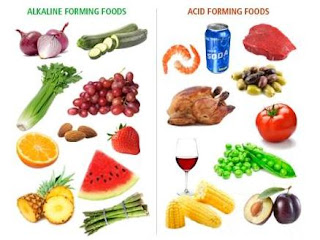
Excessive urination, or urinary frequency, can be divided into subcategories. The first would be related to an increase in total volume of urine produces (also known as polyuria). Second, there can be dysfunction in voiding whereby there are problems with the storage and emptying of urine.
 In all likelihood, you don’t want to spend much time thinking about your prostate. But if you are having problems urinating, your prostate might be what’s keeping you up at night. Painful or frequent urination is a common problem, especially in older men. Urinary tract infections, kidney stones and prostate problems can all produce these symptoms. Frequent urination without pain also can be a side effect of certain medications, or a symptom of diabetes.
In all likelihood, you don’t want to spend much time thinking about your prostate. But if you are having problems urinating, your prostate might be what’s keeping you up at night. Painful or frequent urination is a common problem, especially in older men. Urinary tract infections, kidney stones and prostate problems can all produce these symptoms. Frequent urination without pain also can be a side effect of certain medications, or a symptom of diabetes.
Most cases of urinary tract infections occur in women. However it is a common condition in men older than 50, the condition is known as benign prostate enlargement or hypertrophy/hyperplasia (also known as BPH).
The urethra-the tube that carries urine from your bladder and through your penis-passes through the middle of the prostate gland. When the prostate presses against the urethra, you can have trouble passing urine. Prostate tissue can enlarge in response to certain hormones. It can swell and block the flow of urine from the bladder, causing uncomfortable symptoms and potentially infection.
A urinary tract infection usually causes one or more of the following symptoms:
- Unusually frequent urination
- An intense urge to urinate
- Pain, discomfort or a burning sensation during urination
- Awakening from sleep to pass urine
- Pain, pressure or tenderness in the area of the bladder (in the middle of the lower abdomen, below the navel)
- Urine that looks cloudy or smells foul
- Pain in the side or upper back

Starting and stopping urination can be another frustrating symptom of BPH. The enlarged prostate can press on the urethra, preventing urine from easily flowing out of the bladder. If it take a very long time to empty your bladder because of a weak urinary stream. You may find yourself spending a very long time standing in front of the urinal. If the urethra is partially blocked due to pressure from the prostate, only a small flow of urine can escape the bladder, resulting in weak urine flow and a long, long wait for empty.
 Kidney stones, or renal calculi, are solid masses made of crystals. Kidney stones usually originate in your kidneys, but can develop anywhere along your urinary tract. The urinary tract includes the kidneys, ureters, bladder, and urethra. Kidney stones are known to be one of the most painful medical conditions. The causes of kidney stones vary according calcium stone, uric acid, struvite and cysteine.
Kidney stones, or renal calculi, are solid masses made of crystals. Kidney stones usually originate in your kidneys, but can develop anywhere along your urinary tract. The urinary tract includes the kidneys, ureters, bladder, and urethra. Kidney stones are known to be one of the most painful medical conditions. The causes of kidney stones vary according calcium stone, uric acid, struvite and cysteine.
Food to Avoid:
- Caffeine. Caffeine acts as a stimulant and diuretic that fills the bladder, and needing to void urine on a regular basis. Caffeine is found in coffee, tea, chocolate and soda. To reduce the amount of caffeine in your diet, limit the number of cups of coffee or cans of soda you consume daily.
- Gluten. Gluten is a form of protein found in wheat, rye, barley and triticale. These grains each have slightly different proteins collectively known as prolamins. The promalins cause problems for people who can’t tolerate gluten in their diet. A diet high in gluten can cause frequent urination. Foods high in gluten include bread, pasta, pretzels, muffins and pizza.
 Acidic Foods. Highly acidic foods sometimes trigger a reaction resulting in frequent urination. Such acidic foods include salsa, sodas, teas, coffee, cranberry juice and orange juice.
Acidic Foods. Highly acidic foods sometimes trigger a reaction resulting in frequent urination. Such acidic foods include salsa, sodas, teas, coffee, cranberry juice and orange juice.
- Alcoholic Beverages. Alcohol found in wine, beer, and hard liquor, interferes neurologically with the function of the bladder by affecting the muscles that control urine flow, causing frequent urination. If consumption is excessive dehydration may occur creating more complications such as a urinary tract infection.
- Spicy Foods. Spicy foods irritate the bladder much in the same way that caffeine stimulates the bladder. Avoid spicy foods such as chili peppers, jalapeño peppers, horse radish, curry, salsa, Mexican foods and Chinese foods.
- Phosphorus. Limiting intake of phosphorus found in dairy products, nuts, peanut butter, lentils and beans as well as high protein foods is also recommended to treat urinary troubles as well as kidney disease.
